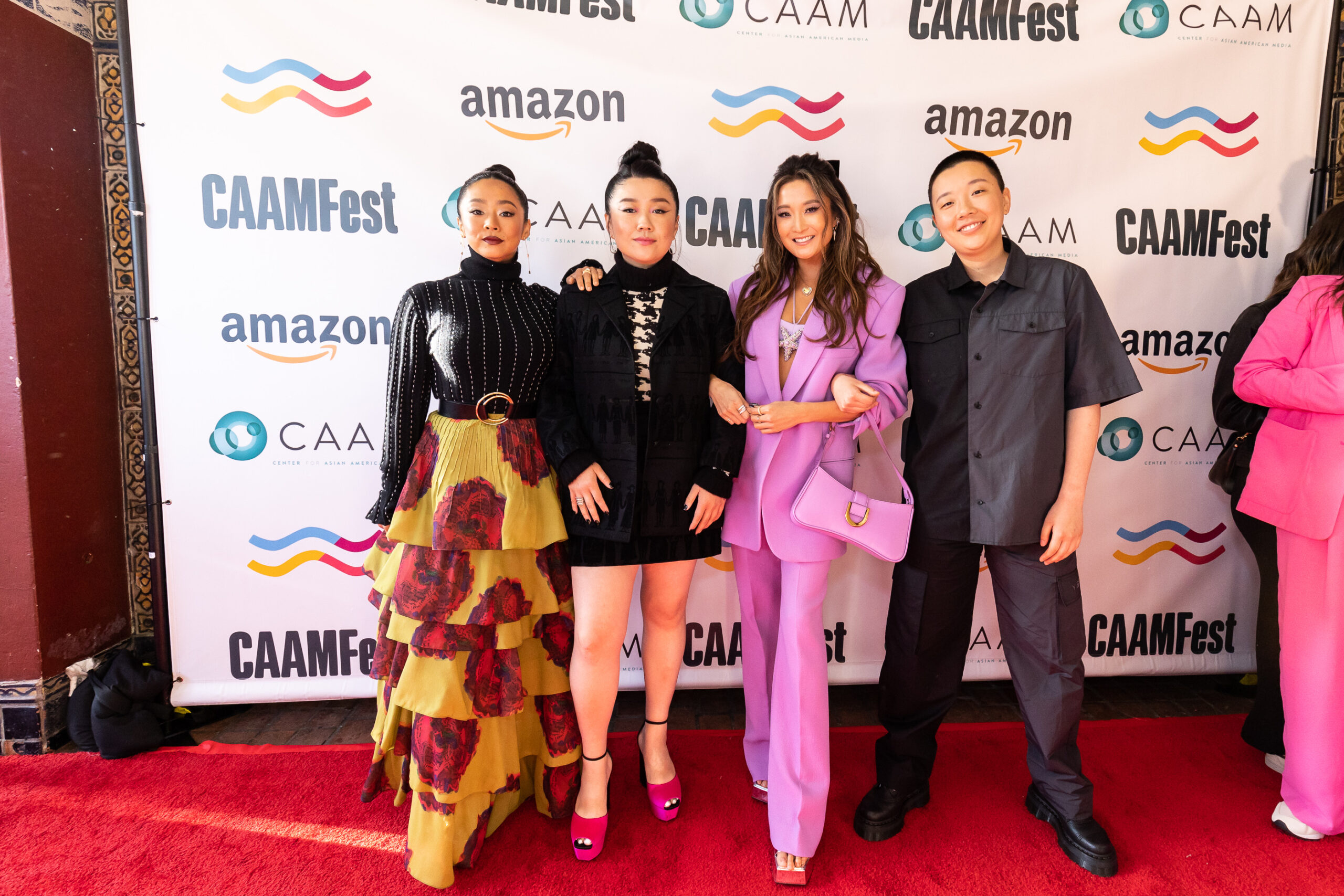May is Asian American Heritage Month, and amid a popular resurgence in Asian American cinema, some artists are ready to push boundaries around sexual content and profanity.
On May 11, inside San Francisco’s Castro Theatre, a cheering crowd enjoyed a screening of Joy Ride, a provocative Asian American comedy that’s notable for depicting Asian characters who are sexually active without shame.
The screening could not have been more high-profile, coming on the opening night of CAAMFest, perhaps the most iconic film festival tasked with that highlighting the nation’s often-overlooked Asian American filmmakers.
“Joy Ride is so insistent on Asian American joy,” Thúy Trần, CAAMFest’s festival and exhibitions director, said in a passionate introduction. “It is so unapologetic about our desires, period.”
In recent years, Asian American cinema has reached previously unprecedented visibility in Hollywood. However, while steamy language and explicit sex are often critical to the syntax of mainstream American film, they’re still uncommon in Asian American movies.
Sex is a big part of Joy Ride, though. A road trip comedy, it’s the adventurous story of four Asian American friends who travel to China in search of who they are—which means CAAMFest’s choice to screen it so prominently asks another question: Are Asian Americans ready to address the birds and the bees?
Compared with the more well-known movies like Shang-Chi and the Legend of the Ten Rings and Crazy Rich Asians, where sexual events are rarely seen, Joy Ride hints at its spiciness in the trailer with many swear words and even some explicit scenes. Although the film is shot in English, one scene uses the Chinese equivalent of the expression “eat a dick,” plus there are a few sexual scenes.
Although American comedy has largely moved on from its juvenile, fratty peak of 15 or 20 years ago—think American Pie or The 40-Year-Old Virgin—foul language and sexual references haven’t gone anywhere, unlike in most films with Asian American protagonists. Then there’s the exception that proves the rule, 2004’s Harold & Kumar Go to White Castle. Starring John Cho and Kal Penn, it’s perhaps the only bro-ish comedy with profanity, cannabis use—and two Asian American leads.
But for Trần, there’s a hunger for Asian American storytelling that will “dig deep into the messiness of our cores.
“Be sloppy. Be horny. Fuck up!” Trần said.
Also present on opening night was Ashley Park, the lead actor in Joy Ride. She said it’s about time to have such a movie that shows an Asian American character as a “fully realized human”—and not for the benefit of somebody else’s story, either.
She also criticized Hollywood’s long history of exoticizing and fetishizing Asian women, saying that in contrast, this movie, with many Asian American filmmakers involved in every part of it, made her feel safe, as “it was from the lens of somebody like us.”
Speaking on the red carpet, Park also urged greater acceptance in Asian cultures for the pursuit of a career in acting.
“Until this movie, nobody thought that their kid could succeed in a raunchy comedy on the screen,” she told The Standard.
The other three main cast members—Sherry Cola, Sabrina Wu and the Oscar-nominated star of Everything Everywhere All at Once, Stephanie Hsu—also attended CAAMFest’s opening night, speaking up for the rights of Asian actors and filmmakers to be a bit risqué. Director Adele Lim couldn’t be at the event as she’s a member of the Writers Guild of America and is on strike.
Cola said at the after-screening Q&A that having these conversations made her feel liberated. She emphasized that her character is a fresh breath of air and said everyone would feel seen after watching the movie.
“We just happen to be Asian,” Cola said. “These cultural specifics are just a plus.”
That remark also mirrors a comment on Douban, the Chinese-language equivalent of IMDb.
“We are not aiming to represent Asians,” the comment said. “We’re just Asians trying [to] make a fun movie.”
